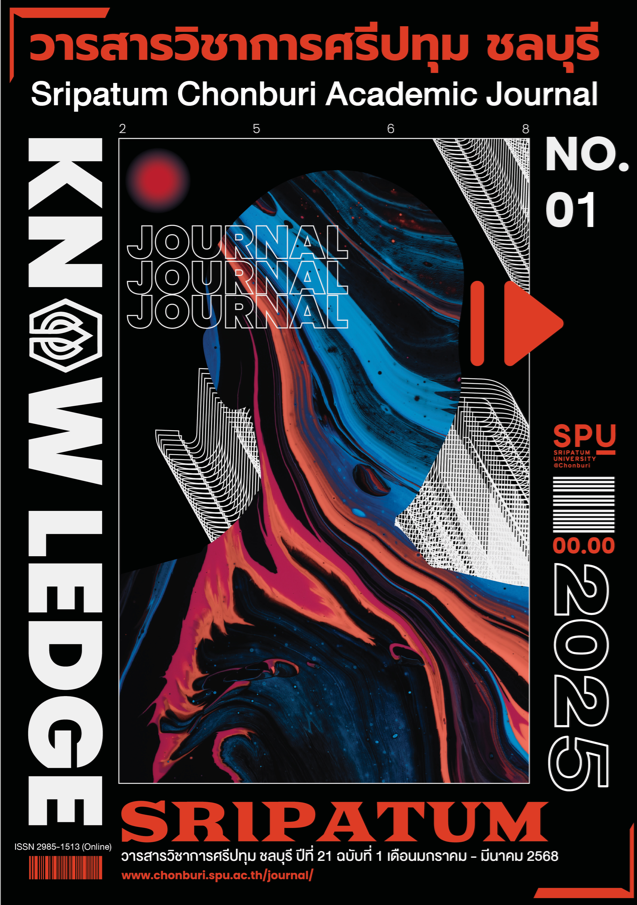A DEVELOPMENT OF LAW CONCERNING ON PENALTIES UNDER THE COSMETIC ACT B.E. 2558 (2015)
Keywords:
Penalty, CosmeticsAbstract
This research aims to study the defining offense that is punishable by imprisonment not exceeding one year and can be fined, problems of not reporting adverse events regarding dangerous cosmetics and problems of determining the criteria for recalling the unsafe cosmetics or fake cosmetics according to the Cosmetics Act, B.E. 2558 (2015) Using document research methods by studying, researching and analyzing information from books, articles, research and related legal provisions. By studying and comparing with the principles of international law, foreign law and principles of Thai law. After that analyzed and summarize the results and suggest guidelines and measures to solve such problems.
From the study, it was found that the Cosmetics Act. B.E. 2558 (2015), Section 90, determining for offense that is punishable by a fine, or offense having punishment of imprisonment for not over one year, can be fined, caused the problems that offender is not afraid of punishment prescribed by laws because these offenses can be fined, for example, the cases of offense of producing for selling, or importing for selling, having hire contract for production or selling unsafe cosmetics when the cosmetics are used, or counterfeit cosmetics under Section 72 and Section 75 which have punishment of imprisonment for not exceeding one year can be fined. Furthermore, the problems of not reporting adverse events regarding dangerous cosmetics and problems of determining the criteria for recalling the unsafe, or fake cosmetics, the Cosmetics Act, B.E. 2558 (2015) does not prescribe the basis of offense. Therefore it needs to use the provisions of the Consumer Protection Act (No. 4), B.E. 2562 (2019), Section 56/3, determining that the punishment is imprisonment for not exceeding one year, or paying a fine of not exceeding two hundred thousand Baht, or both, which is the offense that can be fined, according to the Consumer Protection Act, (No. 4), B.E. 2562 (2019), Section 62 and according to Section 29/7, there is determining that in case business operator finds or is notified according to Section 29/6, Second Paragraph, the person has duty to avert danger of goods or eliminate danger of the product, including correction, change, improving the product, or exchange of the goods, recalling the product and compensating for product price, collecting products out from market. In such case, it is found that it is not consistent with the specified aim to protect and prevent hazard to health or body. It cannot be included in the Consumer Protection Act (No. 4), B.E. 2562 (2019) like other products.
From the study, it is recommended that penalty should be prescribed under the Cosmetics Act, B.E. 2558 (2015), Section 90, so that there will not be including offenses that are punishable by imprisonment, or imprisonment and money fine, in order that there is no comparing and paying the fine. The definition of the words “severe adverse events” and “non-severe adverse events” should be defined and there should be defining of the period, in case the business operator notifies adverse events in delay. There should be defining of the criteria of recalling unsafe cosmetics or fake cosmetics. Such products should be classified according to the level of health risk and determine the period for carrying out the notification of recall of products and period of recalling and adding the provisions of offense regarding civil penalty and punitive damages to be used to remedy the damage to users or consumers of cosmetics specifically. Then it will help the Cosmetics Act, B.E. 2558 (2015) to be more effective.
References
Act on Securing Quality, Efficacy and Safety of Products Including Pharmaceuticals and Medical Devices.
ASEAN Cosmetic Directive (ACD).
Health Product Act 2007.
Regulation (EC) No 1223/2009 of the European Parliament and of the Council of 30 November 2009 on cosmetic products.
พระราชบัญญัติคุ้มครองผู้บริโภค พ.ศ. 2522
พระราชบัญญัติเครื่องสำอาง พ.ศ. 2558
นนทวัชร์ นวตระกูลพิสุทธิ์. (2563). กฎหมายคุ้มครองผู้บริโภค (พิมพ์ครั้งที่ 2). กรุงเทพฯ : โครงการตำราและ เอกสารประกอบการสอน คณะนิติศาสตร์ มหาวิทยาลัยธรรมศาสตร์.
อรัญญา มโนสร้อย. (2533). เครื่องสำอาง เล่มที่ 1. กรุงเทพฯ : สำนักพิมพ์โอเดียนสโตร์. หน้า อภิรัตน์ เพ็ชรศิริ.(2548). ทฤษฎีทางอาญา. กรุงเทพฯ : วิญญูชน.
Downloads
Published
Issue
Section
License
Copyright (c) 2024 Sripatum University Chonburi Campus

This work is licensed under a Creative Commons Attribution-NonCommercial-NoDerivatives 4.0 International License.
บทความทุกบทความเป็นลิขสิทธิ์ของวารสารวิชาการศรีปทุม ชลบุรี



